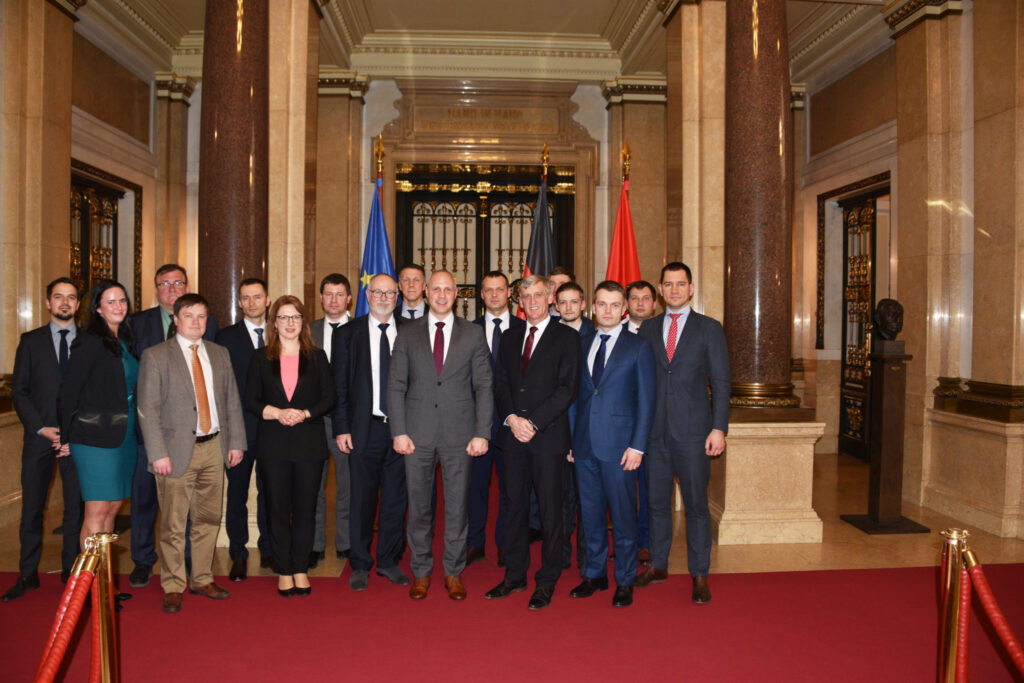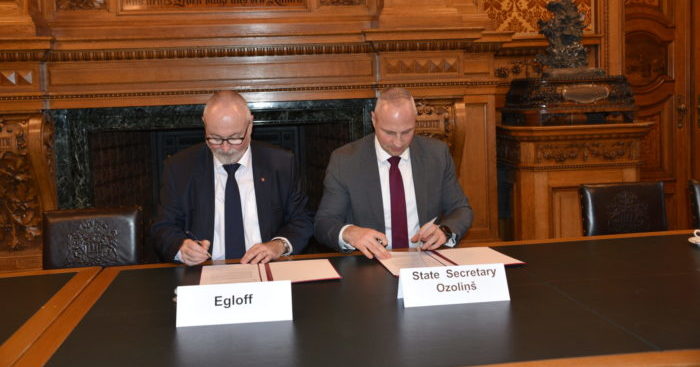German Port of Hamburg signed a Memorandum of Understanding (MoU), aiming to strengthen and expand cooperation between the Latvian ports of Riga, Ventspils and Liepaja and those in the Hamburg Metropolitan Region.
The MoU was inked on the occasion of the visit in Hamburg and Lübeck of a delegation of leading transport and logistics companies in Latvia, led by Kaspars Ozolins, Under-Secretary of State in the Latvian Ministry of Transport.
In the course of this, Kaspars Ozoliņš and Ingo Egloff, Joint CEO of Port of Hamburg Marketing (HHM), signed the MoU, under which they agreed to:
- a more intensive exchange of data and experience;
- joint drafting and implementation of international cooperation projects; and
- further cooperation in developing intermodal transport services between Europe and Asia.
Latvia and Germany are already partners, but further scope still exists for improved and stronger cooperation with the most significant regions and areas of the economy. We are delighted to have given the starting signal today for a close partnership with Germany’s largest seaport,
…said Under-Secretary Kaspars Ozoliņš.

For Northern European ports, the Baltic region is a very attractive market, with stiff competition for cargo and shipments. At the interface with worldwide overseas services, Hamburg assumes the function of a central hub for the Baltic region.
Good infrastructure links with the Port of Lübeck also offers optimal solutions for trailer and ferry services to and from Latvia. The two ports are both keen to further expand existing good relations with the country.
Trade and shipping have linked Hamburg and Latvia since the days of the Hanseatic League. That is all the more reason for us to pool resources to demonstrate our close alliance on the global stage,
…Ingo Egloff added.
In 2018, seaborne container throughput between the Port of Hamburg and Latvia reached a total of 100,175 TEU – 20-ft standard containers. The three Latvian ports of Riga, Ventspils and Liepāja handled a total of 66 million tons in 2018, making them the market leaders in the Baltic.

































































